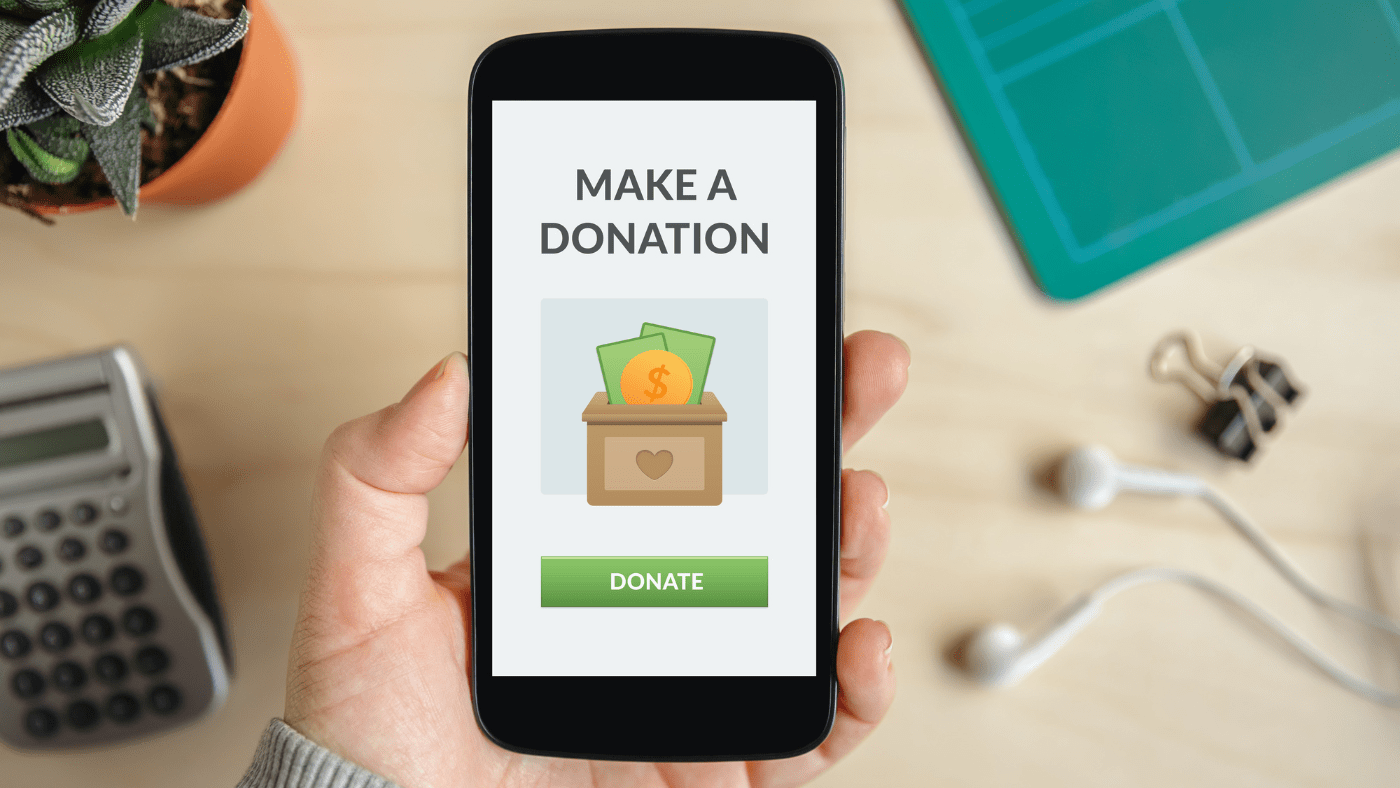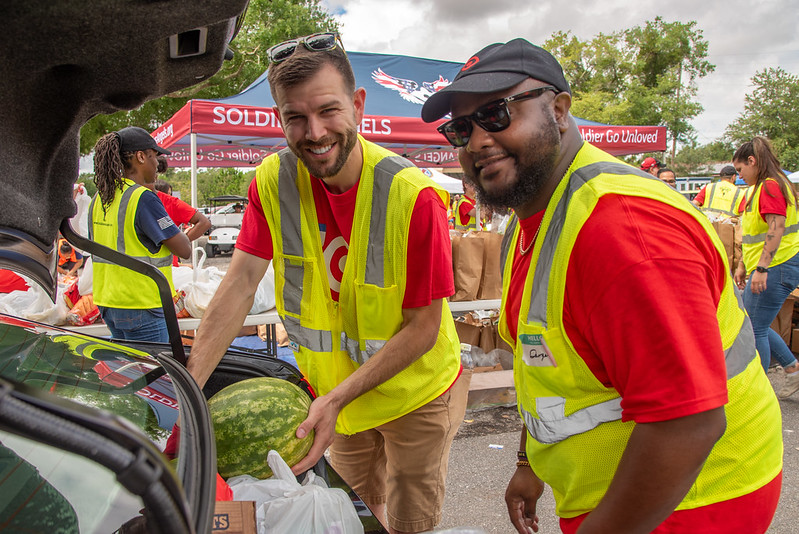Veterans, known for their dedication to service, are often targeted by scammers looking to exploit their generosity. For Veterans, donating to charities—especially those that support fellow service members—feels like a meaningful way to give back to the community. However, Veterans and their loved ones must remain vigilant and learn to protect themselves from charity scams. These deceitful schemes not only drain financial resources and divert funds away from legitimate organizations that provide genuine support to those in need, but they can also lead to personal financial loss and a loss of trust in charitable organizations.
Scammers may request donations through phone calls, emails, social media messages or in-person. The recognizable warning signs of charity scams often include the impersonation of well-known charities; unsolicited contact through text, email, or social media; the use of pressure tactics to create a sense of urgency to make a payment; providing vague or limited information; and inability to provide proof of tax-deductible contributions.
VA is committed to educating Veterans and their loved ones on preventative measures to avoid experiencing charity fraud.
- Find a legitimate charity. Search online for the charity using phrases like “best charity” or “highly rated charity.” Check the charity’s website, mission statement and research their track record.
- Verify the charity on watchdog sites. Use sites like Charity Navigator, CharityWatch, BBB Wise Giving Alliance and Great Nonprofits to review the charity’s ratings. These sites can provide information about the organization and how donations are spent.
- Validate how donations are being spent. Always obtain written information (including annual reports) about any charity before you donate. Make sure you know how your donation is distributed and how much of your donation will go to the charity itself (versus administrative costs). Be wary of words like “majority, large, most of, large percent, administrative costs, processing fees, handling, etc.”
- Verify nonprofit status. Ask about and verify the charity’s nonprofit status. Check the charity’s name using the IRS’s Tax-Exempt Organization Search tool.
- Know the difference between “tax-deductible” and “tax-exempt.” Tax-deductible means you can deduct your donation on your federal income tax return. Tax-exempt means the charity does not have to pay taxes. Even if a charity is tax-exempt, your donation may not be tax-deductible. Taxpayers who give money or goods to a charity can claim a deduction if they itemize deductions, but these donations only count if they go to a qualified tax-exempt organization recognized by the Internal Revenue Service (IRS). If you would like documentation for a tax deduction, ask the charity for a receipt showing the contribution amount and donation is tax-deductible. For more tax information, visit the IRS website or go to http://www.irs.gov/Charities-&-Non-Profits/Contributors.
- Check with the charity. If you receive an email or text message asking for a donation, confirm that the request is from the charity (and not an imposter) by contacting the charity via phone or visiting its website. Likewise, don’t assume charity recommendations on Facebook, blogs or other social media have already been vetted. Research the charitable organization yourself.
- Keep personal information private. Never give out personal information, such as your birth date, social security number, credit card number, checking account number or any financial information, to a solicitor by telephone, mail or door-to-door.
- Avoid paying cash. Pay charities by credit card or by a check that is payable to the fund, and donate directly to the organization either in person (at an event sponsored by the charity) or through the United States Postal Service. Do not pay an individual and never give a donation to a charity that (a) offers to take your donation directly from your account, such as an automatic debit; (b) encourages you to send a donation by courier/overnight express; or (c) asks you to wire your donation.
By recognizing common warning signs, verifying the legitimacy of charitable organizations and spreading awareness within the Veteran community, we can protect Veterans and their loved ones and ensure their donations make a real difference.
If a Veteran is missing a VA benefits payment, identifies a discrepancy in payments, or finds suspicious activity with their direct deposit account, contact VA immediately at 800-827-1000. Veterans who suspect they have experienced fraud can find resources to file a report to the appropriate agency by visiting https://vsafe.gov/ or calling 833-38V-SAFE.
Topics in this story
More Stories
Soldiers' Angels volunteers provide compassion and dedication to service members, Veterans, caregivers and survivors.
For Veterans especially, the risk of identity theft is high, as criminals target reoccurring monthly benefits payments. Bad actors utilize stolen privacy information to exploit VA benefits, health care and pensions.
Veterans are nearly three times more likely to own a franchise compared to non-Veterans.







I have noticed that my bank lists my monthly payments of $10 dollars less. I always thought that it was account transaction fee. Then, again maybe it is, and I don’t know any better.
My dad was in the Navy during world war 2 do me and my brother get any benefits at all?
Great information, thank you VA for putting this out. Knowing that its many scammers out there. To have others watching and checking for the right ones is great.
Seriously, give your credit-card info to people online?
“Avoid paying cash. Pay charities by credit card or by a check that is payable to the fund,
that is good info .Thanks
Very good info especially for those who are now seniors. Thank you
Great info. Thanks!
I received a call from a “policeman’s” charity asking for a donation. I asked the called “how much of my donation will go towards the police department?” He responded, “Glad you asked. We are required by state law to ensure that no less than 15% goes to the police department.” I said that means you can have 85% of the donation. No way. What a rip off.
Honestly, that seemingly low percentage to the project(s), causes, etc. is standard even in the legit, credible non-profs. In fact, as little as 10-15 years ago that 15% was considered high.
You might take a look at orgs like United Way, Salvation Army, Goodwill and others. Although some attempt to claim very high returns, supported with what they classify as credible audits, independent audits of a majority of non-profits showed a shockingly low return to the actual project or cause. However, that may’ve changed, for the better, over the past 15 years, nonetheless, donors need to keep in mind the high, very high cost of administration (staffing, processing, government documentation/accountability and much more). The larger the organization, the greater the operational and administration costs.